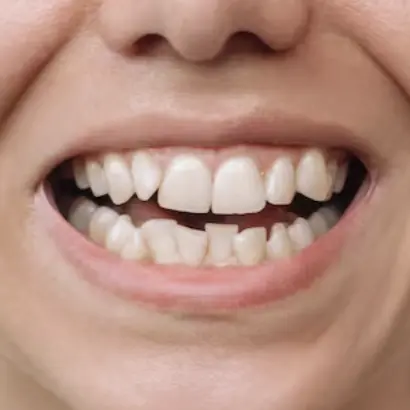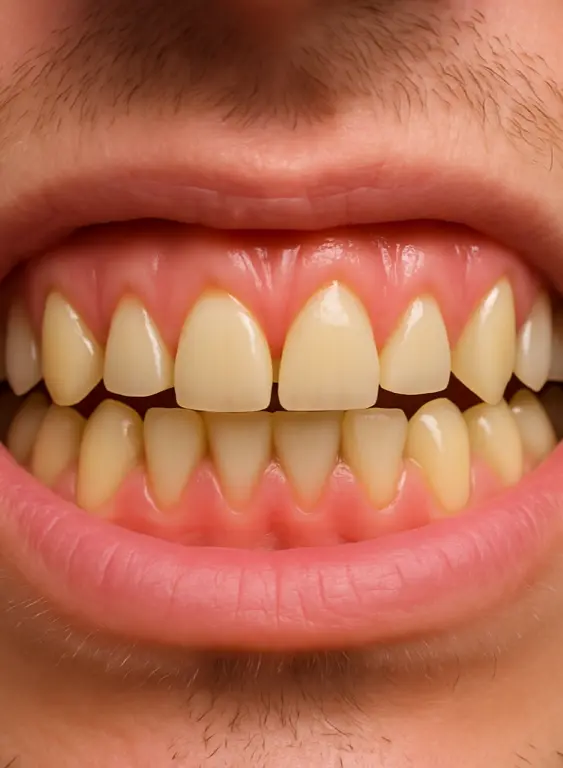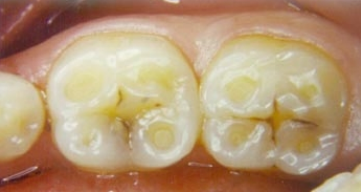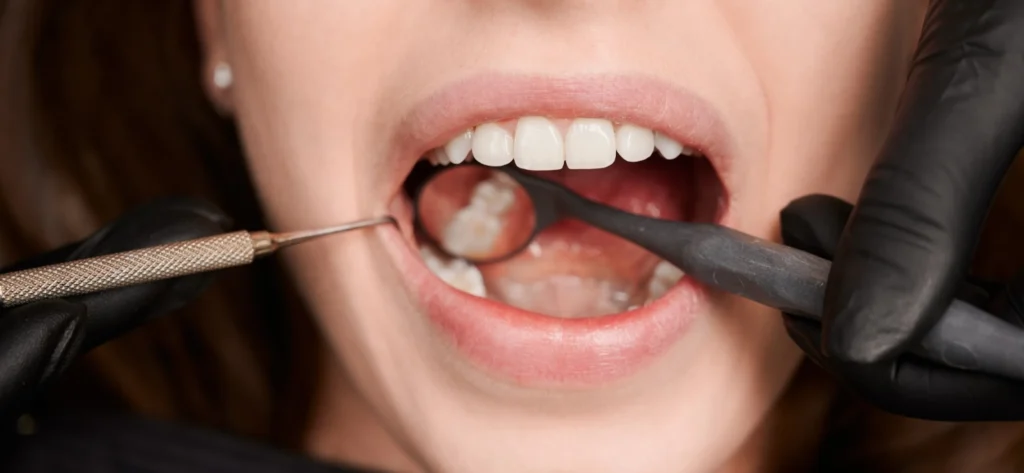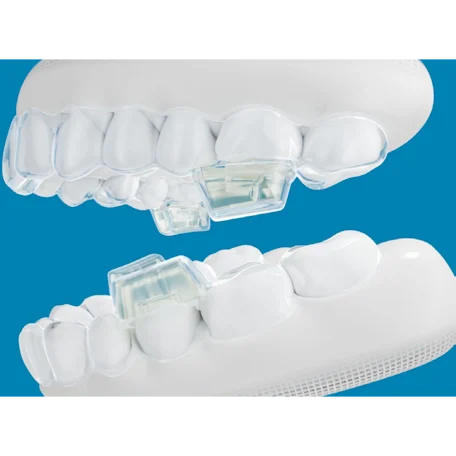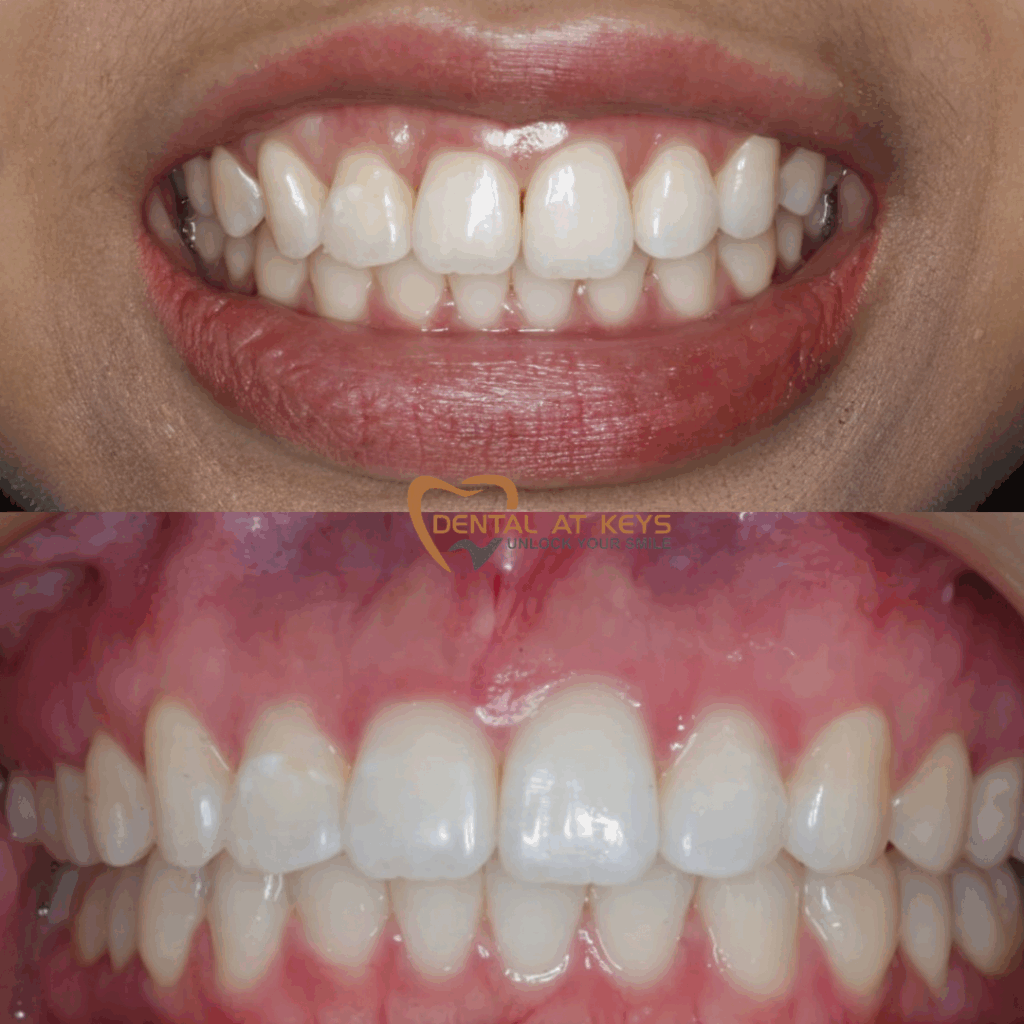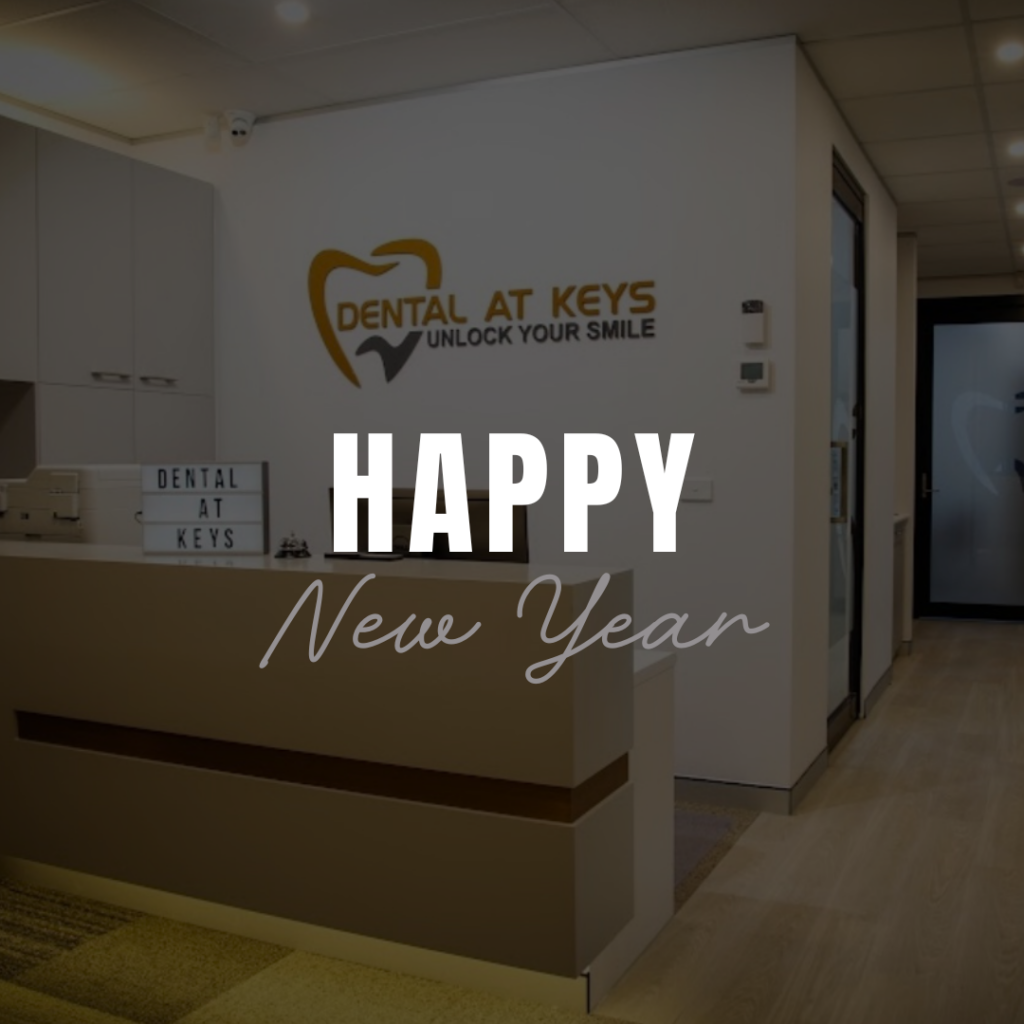
Dental Implants
Have you had a tooth extracted in the past and want it replaced?
Do you have a severely infected or broken tooth that can’t be saved?
Looks like Dental Implants may be the answer!
Dental implants are special titanium screws that act as a tooth root. They are placed in your jaw and your bone grows around it, anchoring it into position. After a few months, a custom made crown is attached to the implant so it functions and acts just like a normal tooth.
We offer a range of implant options:
- Single implants to multiple implants, including full arch reconstruction, rehabilitation and smile make-overs.
- Bone grafting and sinus lifting procedures are also done at our Keysborough clinic – for cases where there is insufficient bone.
- We also offer Zirconia Implants for those that are not able to have titanium dental implants.
Signs You May Be a Good Candidate for a Dental Implant
While nothing man-made can match the strength and function of your natural teeth, dental implants come remarkably close. They are a long-lasting, reliable solution for replacing missing teeth, offering excellent stability so you can eat, chew, and smile with confidence. Dental implants not only restore function but also help preserve jawbone health and maintain the natural shape of your face.
You may be a suitable candidate for a dental implant if:
- You have one or more missing teeth and there is enough healthy bone and space to place an implant.
- You are in good general health with no medical conditions that could affect healing (e.g., recent radiation therapy to the jaw, certain autoimmune disorders, or uncontrolled diabetes).
- You have the dexterity and commitment to keep the implant area clean and maintain excellent oral hygiene.
- Restoring both the form (appearance) and function (chewing ability) of your smile is important to you.
A professional consultation is essential to assess your suitability, as each patient’s needs and health history are unique. With the right planning and care, dental implants can be a natural-looking, durable solution that lasts for many years.

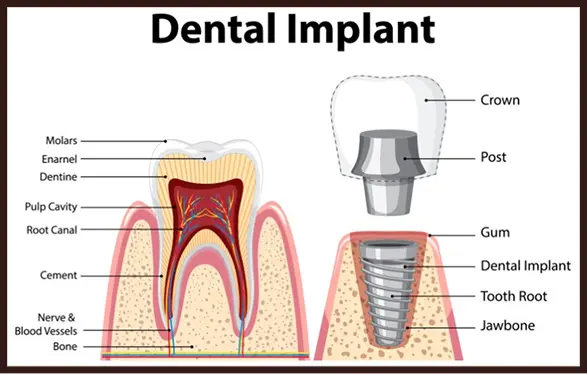
Steps to Getting a Dental Implant
The dental implant procedure is a carefully planned process designed to replace missing teeth with a long-lasting, natural-looking solution. While the exact steps may vary depending on your needs, the typical process includes:
- Initial Consultation & Assessment – Your dentist evaluates your oral health, reviews your medical history, and takes scans or X-rays to determine if you have enough bone to support an implant. We will usually need a 3D x-ray to check the height, width, volume and density of the bone.
- Treatment Planning – A customised plan is created, outlining the implant placement, restoration type, and any preparatory treatments (such as bone grafting).
- Implant Placement Surgery – The titanium implant is placed into the jawbone, acting as an artificial tooth root. This is usually done under local anaesthesia for comfort.
- Healing & Osseointegration – Over some months, the implant fuses with the bone to create a strong, stable foundation for your new tooth.
- Abutment & Crown Placement – Once healing is complete, an abutment is attached to the implant, and a custom-made dental prosthetic is fitted to restore your smile.
With proper care and maintenance, dental implants can last many years, offering a secure, functional, and natural-looking tooth replacement option.
Possible Complications with Dental Implants
What You Should Know
Dental implants are widely regarded as one of the best solutions for replacing missing teeth due to their durability, functionality, and natural appearance. However, like any surgical procedure, there are potential complications that patients should be aware of before treatment. Smoking, gum disease, untreated diabetes, overloading (from grinding) and poor maintenance (oral hygiene) are the main causes of failure. Understanding these risks can help you make informed decisions and ensure the long-term success of your dental implants.
Common Complications with Dental Implants
Infection at the Implant Site
One of the most common complications is infection, also known as peri-implantitis, which affects the gums and bone around the implant. This can cause inflammation, discomfort, and if untreated, may lead to implant failure. Maintaining good oral hygiene and regular dental check-ups are essential to prevent infection.
Implant Failure or Rejection
Although rare, some implants may fail to properly integrate with the jawbone, a process called osseointegration. Factors such as smoking, poor bone quality, or certain medical conditions can increase this risk. Early detection and intervention by an experienced dentist can improve the chances of successful treatment.
Nerve Damage
Placement of dental implants can sometimes affect nearby nerves, leading to numbness, tingling, or pain in the lips, gums, or chin. Skilled planning using 3D imaging and precise surgical techniques helps minimise this risk.
Bone Loss and Gum Recession
Over time, some patients may experience bone loss or gum recession around the implant, which can affect the stability and aesthetics of the implant. Regular monitoring and good oral care are crucial to address these issues early.
Choosing a qualified and experienced dentist in Keysborough, like the team at Dental at Keys, is key to minimising complications.
Our expert implant dentists can guide you through the process and plan your next steps!
Common Dental Problems
Frequently Asked Questions

What are Dental Implants?
Dental implants are screw-like replacements for a tooth which are generally made out of medical grade titanium or zirconia.
Do you need to to refer me to a specialist to do my dental implants?
We do most Dental Implant cases here at Dental at Keys, including full arch Dental Bridges and all the surgical procedures required to do one including sinus lifts.
Do I need Sleep Dentistry for dental implants?
It’s up to you! If you are anxious about surgical dental treatment, sedation options like sleep dentistry might be a good option for you. If not, most of our procedures are done under local anaesthetic at our dental clinic.
Can I get an immediate (instant) Implant?
In some cases, we are able to do an immediate implant with a crown on top (same day crown and implant surgery). However, this is generally not always done due to certain medical risks. In most cases, delayed placement of the crown with extensive healing has a better success rate.
How long do dental implants last?
Dental implants are designed to be a long-term solution and can last many years (97% at 10 years – see the article here) with proper care. The implant itself, which integrates with the jawbone, is highly durable. However, the crown or other prosthetic attached to the implant may need replacement after 10-15 years due to normal wear and tear. Maintaining good oral hygiene and regular dental check-ups can help prolong the life of the entire implant structure.
Is the dental implant procedure painful?
The procedure is usually performed under local anaesthesia, so patients typically experience little to no pain during the surgery. Some discomfort or swelling may occur in the days following the procedure, but it is usually manageable with over-the-counter pain medication. Our dentist will provide detailed post-operative instructions to ensure a smooth recovery.
How long does it take to get a Dental Implant?
Generally speaking, it takes a minimum of 3 months before your dental implant procedure is complete. This involves the placement of the implant into your jawbone and the crown which is typically screwed in on top. Bone grafting, sinus lifts, gum grafts and tooth extractions can all add more time to the total procedure.







